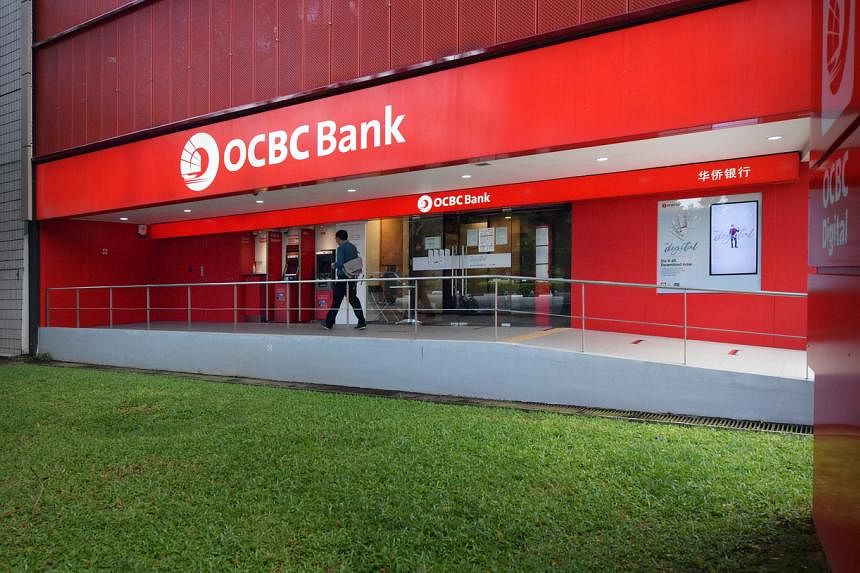SINGAPORE - The first person linked to the OCBC phishing scams involving about $12.8 million has admitted in a district court to offences including money laundering.
Described as a “serial and prolific offender” by the prosecution, Leong Jun Xian, 20, had his own agents working under him to source for bank accounts which would be provided to the syndicates involved in the scams.
He pleaded guilty on Wednesday (April 20) to two counts each of dealing with the benefits of criminal conduct and rioting.
He also admitted to a charge under the Organised Crime Act. Ten other charges will be considered during sentencing.
He was one of seven youths charged in February over their alleged involvement in the scams.
The other six are: Brayden Cheng Ming Yan, 19; Jovan Soh Jun Yan, 20; Muhammad Khairuddin Eskandariah, 20; Lim Kai Ze, 21; and two others who cannot be named as they were below 18 when they allegedly committed some offences.
Deputy Public Prosecutors Jason Chua and Lee Wei Liang stated in court documents that between Dec 8 last year and Jan 19 this year, the police received 768 reports from OCBC bank account holders who had fallen prey to phishing scams perpetrated by unknown scammers.
The victims reported that their bank accounts had been compromised and funds were later transferred out without authorisation. The court heard that they suffered losses of about $12.8 million.
According to court documents, Leong and other youths, including Lim, Soh, Khairuddin and Cheng, had worked together as a group to provide money laundering services to various unknown persons believed to be linked to overseas syndicates.
The court heard that these youths did so by sourcing for and providing control of bank accounts to these unknown persons.
Some of these bank accounts were later used to receive and dissipate funds from the OCBC scam victims.
Other accounts were used to receive and dissipate funds from victims of separate scams.
The youths were also instructed by the syndicates to withdraw cash from automated teller machines, the court heard.
The prosecutors said that the youths had received instructions from unknown persons through three different chat groups on messaging platform Telegram.
The chat groups are known as K2, G5 and a one identified by an emoji of a Singapore flag.
The youths worked with “William” - also known as “Huang Fei Hong”- in K2, “Huang Da Ge” in G5, and “Terry” in the Singapore flag group, the court heard. They also believed that the trio were based overseas.
The youths used a fourth Telegram chat group, called “Mobile Legends”, to communicate among themselves.
Leong was a member of all four chat groups and he had his own agents working under him to source for bank accounts, which would be provided to the syndicates.
William had promised him a salary of $3,000 a month with an additional $600 to $800 per bank account provided.
The DPPs said that between December last year and this February, the youths provided at least 16 bank accounts to the syndicates in the Telegram chat groups, with Leong providing 12 of them.
These 16 bank accounts were then used to receive nearly $600,000 from victims of various scams.
The prosecutors said: “The accused admitted to knowing that the funds entering the accounts which he provided to the syndicates were ‘not clean’, and had reason to believe that William, Huang Fei Hong, Huang Da Ge and Terry were persons engaged in criminal conduct.”
They added that, from November last year to this February, Leong and the other youths were members of a locally linked organised crime group.
OCBC said in January that it had made full goodwill payouts to all victims of the scams.
Its chief executive Helen Wong had also said that this was a one-off payout made because of the speed at which the scams unfolded and other circumstances leading to it.
The Monetary Authority of Singapore (MAS) announced in early February that it is developing a framework on how losses arising from scams are to be shared among consumers and financial institutions, while also working with the industry on "longer-term measures" to enhance the security of digital banking.
MAS and the Association of Banks in Singapore have also introduced new measures to bolster digital banking security, such as cooling-off periods of account detail changes and a minimum 12-hour delay for activating mobile tokens.
In February, OCBC introduced a “kill switch” that lets customers freeze their bank accounts if they suspect that they have been scammed, or believe key account-related details have been compromised.
Separately, Leong also admitted that he was a secret society member who was involved in two rioting incidents.
One took place at Oriental Plaza mall in New Bridge Road on Nov 20, 2020, while another occurred at the void deck of Block 422 Bedok North Road on Jan 10 last year.
On Wednesday, DPP Lee told the court that he objected to the calling of a report to assess if Leong is suitable for probation.
He added that the youth was not a mere “cog in the wheel” in the offences linked to the scams and that his crimes were premeditated.
Defence lawyer Audrey Koo, however, urged District Judge Kessler Soh to call for a probation report for her client.
She told him that Leong is a first-time offender who is currently waiting to enlist for national service.
After hearing both sides, Judge Soh called for reports to assess Leong’s suitability for both probation and reformative training. Offenders given the latter will be detained in a centre and made to follow a strict regimen that includes foot drills and counselling.
Leong is expected to be sentenced in June.
For each count of dealing with the benefits of criminal conduct, an offender can be jailed for up to 10 years and fined up to $500,000.
For rioting, an offender can be jailed for up to seven years and caned for each charge.


